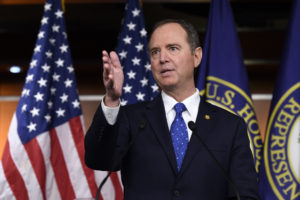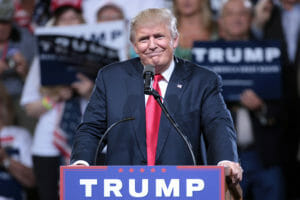We Are One GOP-Controlled Statehouse Away From a Convention to Rewrite the Constitution
During the last such convention in 1787, legislators threw out the entire government and started from scratch. A 21st-century repeat would be an intensely partisan constitutional crisis, experts warn.
The rotunda at the Texas State Capitol. (Phil Roeder / CC-BY-2.0)
Republicans are one state legislature away from acquiring the legal authority to call a new constitutional convention under Article V of the Constitution, reports Charles Pierce at Esquire.
The GOP currently controls 33 state legislatures. It needs 34 to call a convention.
An Article V convention has been a lollipop on the political right for some time now. To constitutional experts, a new convention is like talking about the neutron bomb. Advocates of the Article V movement insist that they can limit a convention to certain topics. (Most of these topics are pretty awful on their own as they seem to be directed at re-establishment of the Articles of Confederation, if not the Confederate States of America.) The problem with that is that there [is] absolutely no precedent in law or in history to back up that contention.
The last constitutional convention we had was supposed to improve the Articles. It ended up throwing out the entire government and starting from scratch. That’s why serious constitutional scholars are scared to death of one. Well, that, and the fact that we’d be trading in James Madison, Alexander Hamilton, and George Mason for …
In a 2014 article for The Washington Post, Robert Greenstein, founder and president of the Center on Budget and Policy Priorities, called a constitutional convention “the single most dangerous way to ‘fix’ American government.”
The implications are enormous. At stake, potentially, are the freedoms we take for granted under the Bill of Rights; the powers of the president, Congress and the courts; and the policies the government can or cannot pursue. Conventioneers could alter absolutely anything about the way the United States is governed. Some say they want to terminate all federal taxes and to require super-majorities in the House and the Senate to put any new taxes in their place. Others want to bar the government from carrying out a number of its functions, for example by constraining its ability to regulate interstate commerce. Whatever changes a convention approved would be enshrined in the Constitution if three-fourths of the states ratified them.
Yet the processes for impaneling the convention, selecting the delegates, setting the convention’s voting rules, and determining what issues the convention would consider and how much of the Constitution it would seek to rewrite are a mystery. That means that under a convention, anything goes. There are no rules, guideposts or procedures in any of these areas. …
there has not been a constitutional convention since the first one, and for good reason. As constitutional experts from the late Chief Justice Warren Burger to Justice Antonin Scalia to Harvard Law School Professor Laurence Tribe have warned, a constitutional convention would place the nation in uncharted territory, with very serious risks for our political system. Convening a convention, as Tribe put it, would be “putting the whole Constitution up for grabs.” And although I don’t often agree with Scalia, he hit the nail on the head when he said recently: “I certainly would not want a constitutional convention. Whoa! Who knows what would come out of it?” …
Constitutional law experts generally agree that it would be up to Congress to decide [the] issues. The president has no role, and with no legal guideposts, the courts probably would decline to intervene. Given the high stakes involved, these issues could generate intense partisan division and acrimony, and Congress could make decisions on them on a highly partisan basis.
—Posted by Alexander Reed Kelly
Independent journalism is under threat and overshadowed by heavily funded mainstream media.
You can help level the playing field. Become a member.
Your tax-deductible contribution keeps us digging beneath the headlines to give you thought-provoking, investigative reporting and analysis that unearths what's really happening- without compromise.
Give today to support our courageous, independent journalists.






You need to be a supporter to comment.
There are currently no responses to this article.
Be the first to respond.